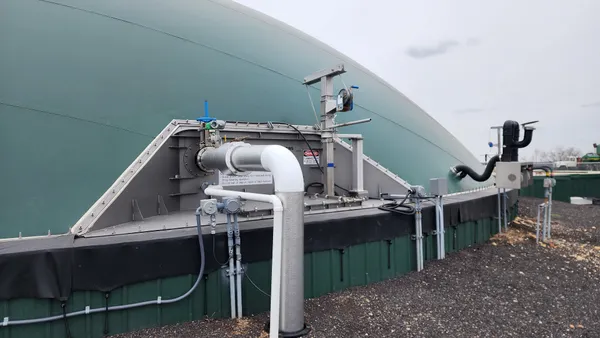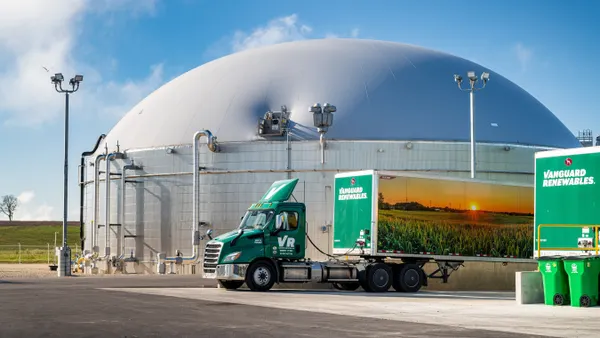Dive Brief:
- Researchers from the University of Guelph have discovered a technique that could render farm waste into biofuels through a “cooking” process.
- Scientists were baffled about how to generate energy from these waste materials, and have been searching for a way to transform wet waste into a biofuel product with the potential to be used in energy facilities.
- Cooking organics such as corn husks, tomato vines, and manure has many benefits, including low costs associated with the closed-loop circle aspect of the process. Farmers would usually have to pay for removal of waste; now, there is the potential to generate income from the materials.
Dive Insight:
Researchers are looking at a five to seven year timeline to perfect and test the “cooking” process and equipment before the project is implemented on a large scale. Large “pressure cookers” installed in close proximity to farms could be on the horizon.
According to Animesh Dutta, director of the Bio-Renewable Innovation Lab at the University of Guelph, governments and the agricultural industry are interested in the technology. He said the commercial systems, once in operation, have the potential to reduce energy costs and benefit the environment. “It’s going to change the paradigm of energy production in North America," said Dutta.












